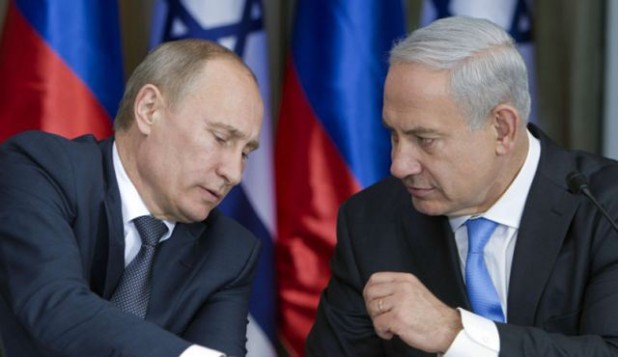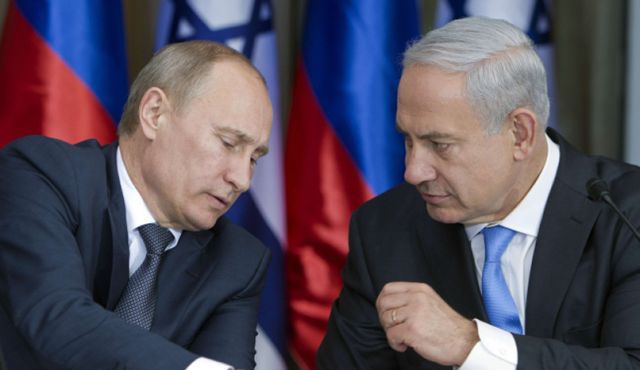Andrew Anglin
Daily Stormer
September 24, 2015

Putin is now literally causing Netanyahu to bitch-out.
By deploying troops, aircraft and weapons to Syria, Russia has over the past fortnight surprised the US, outmanoeuvred regional players such as Turkey, and positioned itself as a decisive player in any postwar regional order.
However, Israel, the pre-eminent military power in the Levant, has arguably emerged as the biggest loser from the Kremlin’s Syrian gambit.
By stationing about 2,000 troops and setting up what analysts say could become three bases around Latakia, Moscow has bolstered the flagging regime of Bashar al-Assad, whose main allies in the four-year-old war are Israel’s leading regional enemies: Iran and the militant group Hizbollah.
Israeli planes and artillery have struck inside Syria several times since 2013 to prevent the transfer of weapons to the militant group, and Israel accuses the Assad government of working with Iran to open a front against it in the Syrian Golan. Now it must co-ordinate any potential strikes with Moscow.
Read: “Now Bibi Netanyahu must ask Vladimir Putin for permission.”
Benjamin Netanyahu, the prime minister, has put the best possible face on what some analysts are calling the “game-changing” move by Russia. Emerging from hastily arranged talks with Russia’s president Vladimir Putin on Monday, Mr Netanyahu said that Israel and Russia had agreed a joint co-ordination mechanism to “prevent misunderstandings” — code for clashes or dogfights over Syria.
…
Exactly how will Israel co-ordinate its military strikes with the Kremlin? Will there be a cyber-age equivalent of the cold war-era “red telephone” Israeli and Russian military planners can pick up? Does Russia, a big producer of the type of weapons Israel fears, agree with Israel’s “red lines” on which of them may or may not be used by Hizbollah?
Israeli officials have told journalists that the new mechanism will involve exchanging intelligence and co-ordinating any possible action in the border region. Meanwhile, Mr Putin assured Mr Netanyahu that “all of Russia’s actions in the region will always be responsible”.
However, Russian officials have been sparing with details about how the proposed co-ordination mechanism will work.
The Russian mobilisation in Syria also puts Israel in the awkward position of having to acknowledge publicly, if obliquely, that its aircraft have been operating over southern Syria for years. The government has maintained a policy of silence on most of its strikes to avoid provoking the weak Assad government to mount a military response.
The policy stretches back more than a decade, and reached an apex of sorts in 2007, when Israel carried out an unacknowledged air strike on a nuclear reactor in Syria.
More recently, Israel in January struck in the Golan and killed six Hizbollah members and an Iranian general. Another air strike in the Golan last month, in retaliation for four rocket strikes that Mr Netanyahu accused Iran of orchestrating, killed at least four people.
It is not certain that the military interests of Israel and Russia will inevitably clash.
You’d best start believing in military interest clashes – you’re in one.
